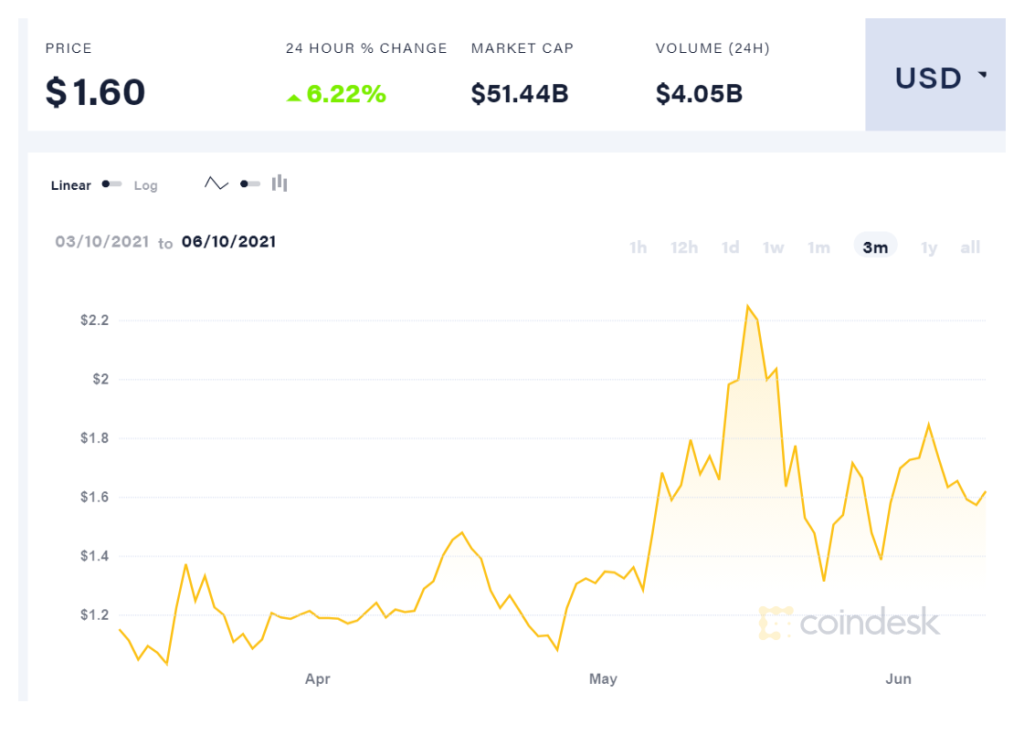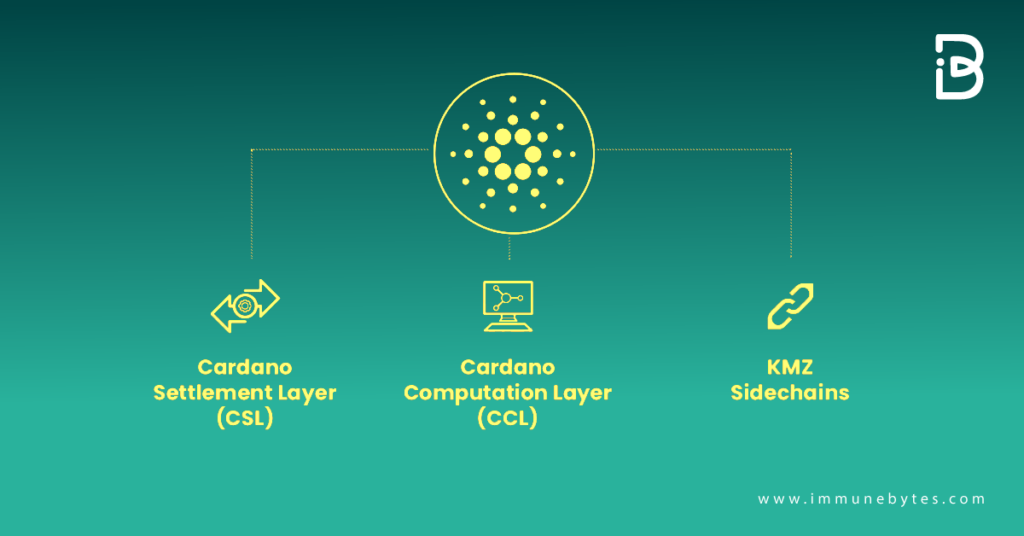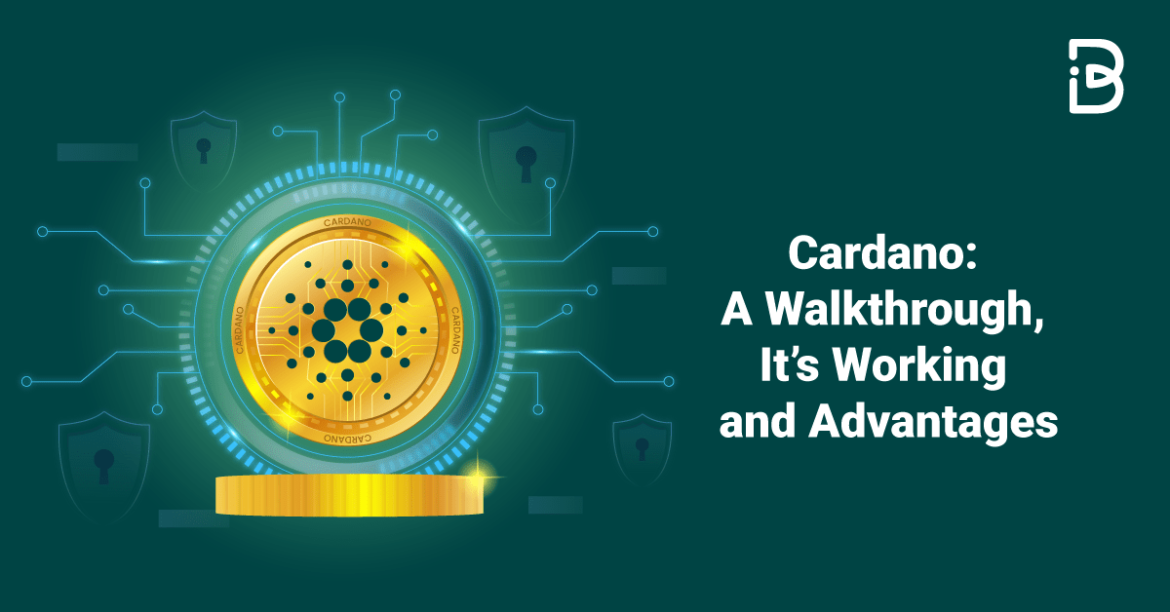Blockchain is one of the fastest-growing technologies and has advanced the way for various cryptocurrencies, platforms, decentralized applications, and much more. Cardano is one of them and it has become one of the fastest-growing cryptocurrency platforms.
Move over, Bitcoin? Well, not really but Cardano is surely the talk of the town.
After being launched in September 2017, Cardano’s ADA remained under the radar of traders until the end of November. Since then, the cryptocurrency has jumped by 1,520%. With a market capitalization of $51 billion, Cardano is the fifth-most valuable cryptocurrency as of this writing.
In this blog, we are going to give you a quick walkthrough of the blockchain and what makes it unique from the rest! Let’s begin.
A Little History of Cardano
Table of Contents
The first full decade of the cryptocurrency was largely dominated by Bitcoin and Ethereum. Bitcoin pioneered the crypto space from the outset as the original blockchain-based asset, while Ethereum redefined the limits of possibilities by introducing smart contracts and hosting thousands of new ERC20 protocols that continue to push the industry forward to this day.
Cardano (ADA) can be considered a global blockchain initiative, given that it is the first blockchain that is peer-reviewed and academically developed by a group of experts in the field. Cardano is developed by one of Ethereum’s co-founders, Charles Hoskinson, who launched the blockchain platform in 2017. The idea behind developing this blockchain was to ?provide a more balanced and sustainable ecosystem? for cryptocurrencies. The eclectic group chose to do something different in 2015 and build a native blockchain from scratch.
Cardano blockchain Security Audit
What is Cardano?
Cardano is a proof-of-stake blockchain platform that has more or less similar characteristics to the Ethereum blockchain. The distinguishing factor between Cardano and other blockchain platforms is that Cardano is peer-reviewed and is developed based on evidence-based methods. It is also a smart contract platform and has its cryptocurrency called ?ADA.?
Going by numbers, the chart below shows the highs and lows of ADA in the past 3 months:

Source: https://www.coindesk.com/price/cardano
How does Cardano Blockchain Work?
The two factors contributing to Cardano’s uniqueness are the Cardano Settlement Layer (CSL) and the Cardano Computational Layer (CCL).
Any idea what those are? No? We got it covered!
Simply put, as compared to other blockchain ecosystems, Cardano has a different architecture. It follows a layered structure formed on two layers, a settlement layer? CSL, and a computational layer? CCL.
Explaining a bit further, CSL is where peer-to-peer transactions are facilitated, such as the transfer of tokens between users whereas CCL is the lifeblood of the network. It is responsible for maintaining the chain’s security, acts as ground zero to deploy smart contracts, and also serves its purpose of being a framework that is architectured to ensure regulatory compliance with various jurisdictions.

Another component of the blockchain that makes it special is the KMZ Sidechains. Cardano’s sidechains are based on research from Kiayias, Miller, and Zindros (KMZ) that use proofs of work to enable cross-chain transactions. The concept allows for the secure and non-interactive movement of funds from CSL to any CCL or other blockchain supporting the protocol. KMZ sidechains are the key to encapsulating complexity.
However, KMZ Sidechains still have ways to go before the technology can be implemented in the working code.
How Cardano Is Different From Bitcoin and Ethereum?
Cardano vs Bitcoin
Bitcoin is the largest cryptocurrency in terms of market capitalization but what it lacks, is customer support. Cardano, on the other hand, has already rolled out an update that includes smart contracts via a new platform called Plutus. While Bitcoin does have a plan of its own, it is quite far from being implemented, mostly because of the choice of smart contract language? Sapio, which is still very much in the development stage.
Also, Cardano is strengthened in terms of transaction throughput. Bitcoin has a scalability problem and we’re all aware of it, with its capacity to only settle 4.6 TPS. This pales in comparison with Cardano, which can handle 257 TPS; therefore, Cardano is much faster than Bitcoin in its current state.
Cardano vs Ethereum
With the current setup between Cardano and Ethereum, Cardano appears much stronger than its competitor, Ethereum, in terms of TPS and also transaction costs, Ethereum loses the race due to its expensive gas fees.
Adding to that, smart contracts on Ethereum are less tolerant of errors as compared to what Cardano supports with the release of the CCL.
Some Other Important Insights of Cardano:
- Cardano is written in a security-focused programming language: Haskell, which features strong static typing and is a purely functional programming language.
- On the scalability front, Cardano calls on cryptography researchers to source ideas for scalable consensus, contract management, and high user loads.
- ADA is Cardano’s native token. It is used to make peer-to-peer transfers on the platform, as well as participate in the network’s staking functionality. Anyone that holds and trades ADA can be considered a validator.
- It follows a Proof-of-Stake consensus to verify the financial transactions.
- Cardano chain can process as many as 257 transactions per second (TPS).
Wrrapping Up
Cardano is an emerging blockchain platform and has an advantage over other blockchains because of its scientific foundation. With the roadmap that the Cardano team has planned out, it is bound to revolutionize cryptocurrency networks in the blockchain industry. But it is still in its early days, a lot depends on the execution of the vision.
While its initial use case is as a cryptocurrency, Cardano’s blockchain intends to expand beyond coins into a control layer that will provide services absent in the cryptocurrency ecosystem today. Cardano is a valuable project and has a lot of potentials considering it pulls off what it claims to.
About Us
ImmuneBytes is facilitating smart contract auditing services by employing the use of cutting-edge techniques on smart contracts and decentralized applications. We have a team of experienced security professionals who are adept at their niches and provide innovative solutions and consultation. So far we have worked on 155+ blockchain start-ups on different blockchain frameworks, with clients spread across the globe, and are continually unfolding ourselves to make this decentralized movement thrive.

